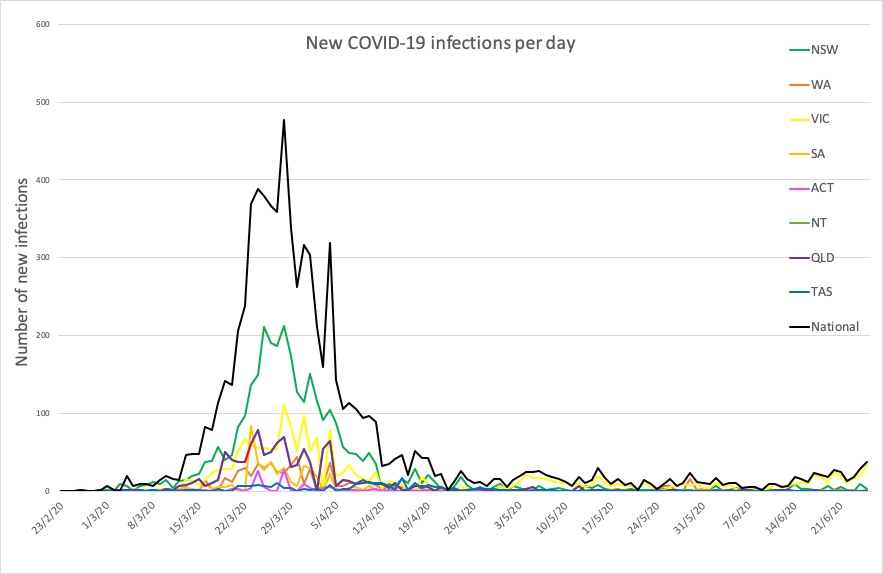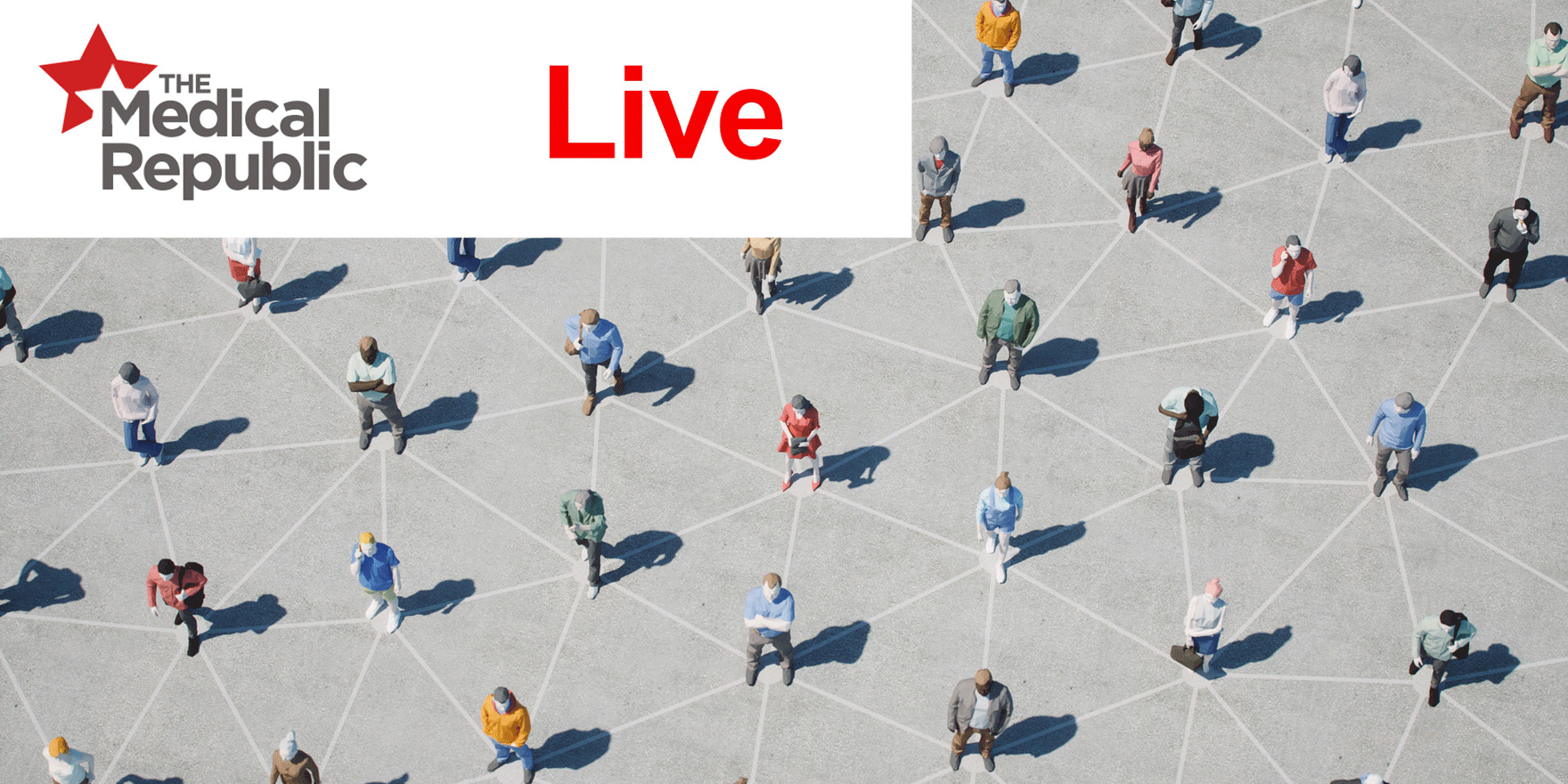Antibody tests for COVID-19 appear to be most accurate in the third week after the onset of symptoms, according to a Cochrane review
Welcome to The Medical Republic‘s live COVID-19 blog.
Got any tips, comments or feedback? Email me at bianca@biancanogrady.com
The latest
- Afternoon update: Cochrane takes a look at antibody tests.
- The new TMR podcast episode is live.
- Morning update: Lessons from Ebola in how to handle COVID-19, and updated list of those at risk of severe disease.
- Single biggest one-day increase in COVID-19 cases in Victoria since early April.
- Antibody tests for COVID-19 appear to be most accurate in the third week after the onset of symptoms, according to a Cochrane review.
The systematic review identified 54 studies of the diagnostic accuracy of antibody tests – 25 commercial tests and a range of in-house assays – involving 15,976 samples. However because there was so much variation in the behaviour of different antibodies over time, the authors concentrated on the 38 studies that presented their results stratified according to time since the onset of symptoms.
This suggested that all three antibody assays were most sensitive in the third week after symptoms began; for example, the combination of IgG and IgM antibodies achieved a sensitivity of 91.4% at 15 to 21 days after symptom onset. Based on this combination and time frame, and assuming a prevalence of 50% (as has been considered possible in healthcare workers with respiratory symptoms), this assay would result in around 43 false negatives per 1000 people tested, and 7 false positives.
Beyond three weeks, there were too few studies for the reviewers to draw any conclusions.
The authors also pointed out that the duration of antibody rises was unknown, especially after 35 days from symptom onset.
“We are therefore uncertain about the utility of these tests for seroprevalence surveys for public health management purposes,” they wrote. “Concerns about high risk of bias and applicability make it likely that the accuracy of tests when used in clinical care will be lower than reported in the included studies.”
- A lot has been happening in the COVID-19 space as community transmission in Victoria continues to rise. If you lost track of the live blog, don’t worry, we’ve simmered down the highlights from the week into this easy-to-consume podcast:
- Such is the craziness of these times that reading the headline from the US National Institutes of Health ‘Swimming with the High-Tech Sharks to Improve COVID-19 Testing’ led to a few moments of thoughtful contemplation about what new biomarker or modelling approach might have been gleaned from our toothed fishy friends.
But no; the headline was from a blog post about how the NIH is using a ‘shark tank’ approach to identifying the best candidates for point-of-care serology tests, where the sharks are experts whose sole aim is to try to rip your idea to shreds. - The Democratic Republic of Congo’s success in getting a lid on the latest Ebola epidemic is has provided important lessons in dealing with COVID-19, according to a report from the WHO. The Ebola outbreak, which began on 1 August 2018, was the second largest so far and claimed 2287 lives.
Despite being an active war zone, the nation was able to mobilise and train thousands of community workers – mostly women – who used a smartphone data collection app to track hundreds of thousands of contacts of infected patients and report the data in real-time. They contacted extensive testing, made sure patients had access to medicines, and delivered a vaccine to more than 300,000 Congolese. - The US Centers for Disease Control has put out an updated list of people who are at greater risk of severe COVID-19, including individuals with chronic kidney disease, type 2 diabetes, sickle cell disease and children with complex health needs. They also reiterated the risk to older adults, and stressed the importance of elderly people minimising their contact with others and remaining at home as much as possible.
- Victoria has recorded its biggest single-day increase in COVID-19 cases since early April, with 33 new cases diagnosed yesterday. Ten of these were returned travellers in hotel quarantine, nine were linked to known outbreaks, six were picked up through routine testing and eight are still under investigation.
Around Australia to 9pm yesterday, there were a total of 37 new cases reported:
National – 7558, with 104 deaths and 6942 recovered
ACT – 108
NSW – 3161
NT – 29
QLD – 1066
SA – 440
TAS – 228
VIC – 1917
WA – 608



